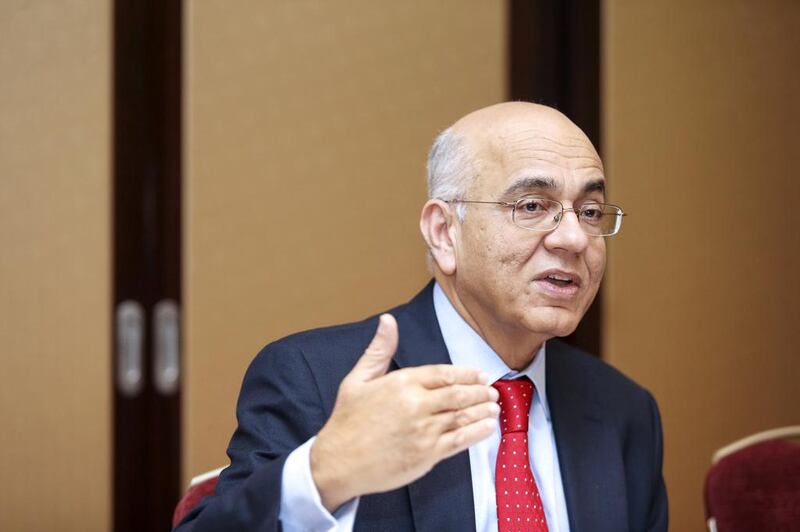Regional governments could face a US$175 billion hole in their fiscal surpluses from falling oil prices, according to IMF projections.
The IMF believes that lower oil prices could knock nearly 1 percentage point off economic growth rates in GCC countries, putting new fiscal pressure on policymakers in the region to reduce spending plans.
At the launch of the IMF’s regional economic outlook in Dubai, Masood Ahmed, the IMF’s Middle East director, said if oil prices hit $75 per barrel for a prolonged period it would knock 8 basis points off the GDP of Arabian Gulf countries, and could reduce the aggregate fiscal surplus for GCC government from a current projected $275bn to around $100bn.
The IMF also warned that Saudi Arabia could suffer a budget deficit as early as next year if oil continued to fall and public spending continued at current levels. The IMF previously forecast the kingdom’s public finances would be in the black until 2018.
If the oil price remains low, it would increase pressure on all regional budgets to cut public spending and curb subsidies on energy, utilities and other areas where consumers’ costs are partly met by the state.
Mr Ahmed said that the UAE was less subsidised than many other regional economies, but believed that Emirati authorities would also consider reducing subsidies. He and his team are in the UAE for a week of meetings with UAE officials.
"The GCC oil-exporting countries have the resources to continue with their spending plans next year, because they have the financial buffer provided by previous oil revenues. But there is a growing discussion about the need to address energy prices in the region because of the fiscal effect of subsidies and the growing levels of energy consumption, which are among the highest in the world," he said.
For the Middle East and North Africa region as a whole, the IMF is expecting GDP growth to rise from the current year’s 2.6 to 3.8 per cent, but Mr Ahmed said that forecast was put at risk by the deepening of regional conflicts, and the “rapid decline” in oil prices.
The IMF published bi-annual outlook document was prepared before recent falls in global oil prices. Goldman Sachs, the US investment bank, yesterday cut its forecasts for oil, setting a new target of $85 per barrel for Brent in the first quarter of 2015, down from a previous forecast of $100, and possibly at $75 in the course of the year. Other experts, such as Standard Chartered bank, are not so bearish, while officials in the biggest producer, Saudi Arabia, said recent falls were “temporary”.
Without the effect of falling oil, Mr Ahmed said that GCC economies would grow at 4.5 per cent next year, driven by non-oil sectors and supported by increased government spending and private sector credit expansion.
He said that growth in oil-importing countries in the Mena region would be “modest and lacklustre”, as the international environment and regional conflicts continue to weigh on economies.
“That growth rate is not high enough to make a dent in unemployment, which is the biggest challenge the region faces. Growth needs to be in the region of 8 per cent to have any effect on unemployment.” Growth would continue to be affected by what Mr Ahmed called “social and security transitions”.
The IMF said that despite progress on fiscal consolidation, public finance deficits and debt levels in oil- importing countries were still high.
On the UAE property market. Mr Ahmed said the IMF was less concerned than it had been a year ago when prices were rising fast, especially in Dubai. “For the last few months the pace of price increases has moderated quite a lot and credit goes to the government for its macroprudential measures on mortgages, loan-to-value levels and transaction-fee increases.”
The IMF estimates that Dubai public sector debt stands at $140bn, but that does not take into account recent payments made by Dubai World and Nakheel. The IMF is recalculating its estimate of Dubai debt in the light of these and other debt measures.
Mr Ahmed said that resources were available “in the rest of the world” to help fund Dubai’s latest rapid round of expansion ahead of the Expo 2020, but he said such projects had to be carefully managed and segmented to avoid the problems of “major expansions in the past in the UAE and Dubai”.
He said: “I would not encourage excessive risk-taking by government-related enterprises, and would urge a degree of coordination and oversight across projects.”
fkane@thenational.ae
Follow The National's Business section on Twitter





